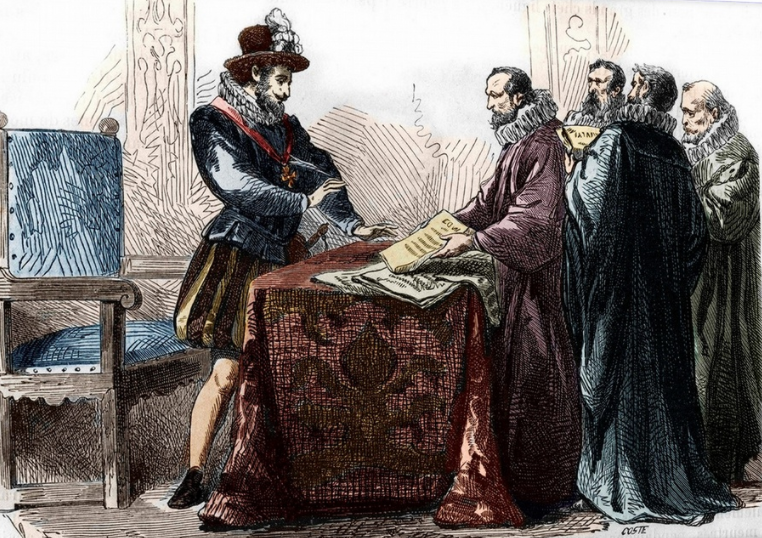Receive our blog posts in your email by filling out the form at the bottom of this page.
In recent news, the U.S. Supreme Court ruled in favor of a mail carrier for the U.S. Postal Service who was forced to resign over his refusal to work (deliver mail) on the Lord’s Day and, subsequently, filed suit against the agency for its denial of an accommodation of his religious belief in keeping the Lord’s Day holy, and thereby violating his civil rights. Gerald Groff, the postal employee in question, had worked at the Post Office since 2012, but a 2013 arrangement between the U.S. Post Office and Amazon led to a requirement that mail be delivered on the Lord’s Day, a duty which Mr. Groff was initially able to avoid until the issue was pressed upon him, leading to his resignation for conscience’ sake. The Supreme Court’s ruling was welcomed by many who have been concerned about the encroachment of business on the Christian Sabbath, especially non-essential labor that is mandated by the federal government of its employees.
It should be noted, though, that the 2013 Post Office-Amazon arrangement which led to Mr. Groff’s trial of conscience is not the first time this particular issue has been confronted in American history. This very issue, in fact, was of immense concern to 19th century Presbyterians.
As far back as 1808, Postmaster General Gideon Granger directed that post offices be opened on the Lord’s Day for the sorting of mail. One particular local postmaster in Washington, Pennsylvania, Hugh Wylie — who was also a ruling elder in the Presbyterian Church — began to open his post office on the Lord’s Day not only for sorting of mail, but also for the distribution of mail. Eventually, the distribution of the mail began encroached upon the time of worship services, and complaints were made about the propriety of this sort of work occurring on this day of the week. Although the Post Office supported Wylie in his efforts to maintain the flow of mail, the Synod of Pittsburgh condemned Wylie and barred him from communion, and suspended him from the eldership. He appealed unsuccessfully to the General Assembly of the Presbyterian Church in the United States of America.
Meanwhile, in 1810, the U.S. Congress passed a law requiring postmasters to open their offices on the Lord’s Day. In the context of the approaching War of 1812, the argument of necessity held sway in the public mind given that need for expedited communication during wartime carried plausible weight. But the opposing argument that the nation itself was involved in a sinful course of action by diverting federal employees and citizens from the duties of the Sabbath by maintaining a regular course of business on that day also began to carry weight in the minds of Christian citizens. Petitions were sent from the PCUSA General Assembly in 1812 and 1815 to Congress urging repeal of the 1810 legislation. Although these and other petitions went unheeded by Congress, the 1819 PCUSA General Assembly ruled concerning its members that engaging in business or commerce — in particular, in relation to Sabbath mail delivery — on the Lord’s Day was a bar to communion (Baird’s Digest [1856], p. 33).
In the mid-1820s and early 1830s, a renewed effort was made by Christians of various denominations to pressure Congress to repeal its legalization of mail delivery on the Lord’s Day. Lyman Beecher helped to found the General Union for the Promotion of the Christian Sabbath in 1828, and his 1829 sermon on the Pre-Eminent Importance of the Christian Sabbath zeroed in the Sabbath desecration caused by thousands of federal employees being pulled away from public worship to transport and deliver the mail, arguing at one point: “the petitions are, not that Congress will do any thing for religion, but, simply, that by legislation they will do nothing against religion - simply that they will not, with the people's money, hire their twenty-six thousand Mail-carriers, Post-masters and assistants, to unite with the wicked in prostrating the holy Sabbath! We ask for no union of church and state: but, simply, that the moral influence of the Sabbath may not be thus bartered away for secular gain.”
In 1829, Senator Richard M. Johnson, chairman of the Senate Committee on the Post Office and Post Roads and a devout Baptist, issued a report which shot down the petitions sitting before Congress to repeal the 1810 law, stating that “The transportation of the mails on the first day of the week, it is believed, does not interfere with rights of conscience” (Richard C. Wylie, Sabbath Laws in the United States [1905], p. 181). Stuart Robinson notes that “Colonel Johnson was by education and prejudice a Seventh Day Baptist, and the opinion gained general currency that his report was inspired, if not prepared, by a Seventh-Day Baptist preacher” (Sabbath Laws in the United States [1879]).
The controversy was not limited to the halls of Congress or the ecclesiastical courts, but spilled over into the press. Charles Hodge addressed the matter in The Biblical Repertory and Theological Review with his article The American Quarterly Review on Sunday Mails (1831). He objected to the manner in which this respectable journal portrayed the ongoing debate, and used the opportunity to articulate a clear understanding of the obligations of the Sabbath day for all Christians, and further argued that necessity was not at stake in the question of the propriety of mail delivery.
In his controversial 1832 discourse, Prince Messiah's Claims to Dominion Over All Governments; and the Disregard of His Authority by the United States, in the Federal Constitution, Reformed Presbyterian minister James R. Willson continued the argument against Sabbath mail delivery: “The Sabbath is very grossly and scandalously violated in all parts of the United States. It is true, the federal and state legislatures, and the courts of justice, do yet adjourn, on the Lord's holy day. But how do the officers of government spend their Sabbaths? Which of them reads the Holy Scriptures, ‘spending the whole time in the public and private exercises of religion?’ — The transportation of the mails — the opening of the post-offices, and the diffusion of political and other secular intelligence, profane the Sabbath, and corrupt the public mind.”
Stonewall Jackson is known to have been very particular about doing anything that would contribute to the delivery of mail on the Sabbath. Robert L. Dabney had this to say about it: “His convictions of the sin committed by the Government of the United States, in the unnecessary transmission of mails, and the consequent imposition of secular labor on the Sabbath day, upon a multitude of persons, were singularly strong. His position was, that if no one would avail himself of these Sunday mails, save in cases of true and unavoidable necessity, the letters carried would be so few that the sinful custom would speedily be arrested, and the guilt and mischief prevented. Hence, he argued, that as every man is bound to do whatever is practicable and lawful for him to do, to prevent the commission of sin, he who posted or received letters on the Sabbath day, or even sent a letter which would occupy that day in travelling, was responsible for a part of the guilt. It was of no avail to reply to him, that this self-denial on the part of one Christian would not close a single post-office, nor arrest a single mail-coach in the whole country. His answer was, that unless some Christians would begin singly to practise their exact duty, and thus set the proper example, the reform would never be begun; that his responsibility was to see to it that he, at least, was not particeps criminis; and that whether others would co-operate, was their concern, not his” (Life and Campaigns of Lieut.-Gen. Thomas J. Jackson (Stonewall Jackson) [1866], p. 88).
As late as 1889, Thomas P. Stevenson testified on behalf of the National Reform Association before the U.S. Senate in favor of a Sunday Rest Bill, submitting on that occasion a report on The National Mail Service and the Sabbath. Towards the end of his report he made this striking claim: “The action of the Government in this matter involves the whole nation in guilt and exposes the whole people to the righteous judgments of God. No man can say, ‘I never used the mails on the Sabbath; I am therefore not responsible.’ When irreligion and vice unsettle the foundations of social welfare, no man can assure himself that his personal or domestic interests will not be imperiled. When Israel went into captivity ‘that this land might enjoy her Sabbaths,’ the whole people suffered. A nation is justly held responsible for the action of its Government, because the nation is greater than the Government, and can reform it at pleasure. The violation of the Sabbath by the mail service involves in guilt not merely the officials in charge of the Post-Office Department, but the American people. The people have direct, legitimate, and, in some sense, authoritative access to the Government. Those who desire or would insist on the continuance of the Sabbath mail service, in the face of such considerations as we have urged, are a small minority of the population. It is only necessary for the people to speak; the Government will obey their voice.”
Eventually, in 1912, Congress finally acted to bar mail delivery on the Lord’s Day. It was to the great relief and acclaim of many Christians, but the greatest impetus for this change of heart on the part of the federal government was not the petitions of Sabbath-keepers, but the arguments of organized labor who emphasized the need of workers for a day of temporal and secular rest. Thus matters stood until the 2013 Amazon deal, and now in 2023, the highest court in the land has taken the part of a federal worker with a conscience about keeping the Lord’s Day holy. America’s controversy with the Lord, however, is far from resolved. The obligation upon all to uphold the Christian Sabbath, as stated in the Fourth Commandment, endures. Those who seek to witness to this truth rejoice with Gerald Groff, having won his day in court, and yet, as has been said in another context, “The principle for which we contend is bound to reassert itself, though it may be at another time and in another form.”
For further reading on this topic, with additional details, see this 2020 article by Barry Waugh, “Mail Carrying on Sunday.”























